South Korea’s night markets are vibrant cultural hubs where traditional meets
modern, offering visitors an unforgettable sensory experience. These bustling
marketplaces come alive after sunset, filling the streets with the enticing aroma of
street food, the cheerful banter of vendors, and the warm glow of paper lanterns.
From seafood delicacies to trendy fashion finds, each market has its unique
character that reflects its city’s local culture and history.
Seoul – Gwangjang Market
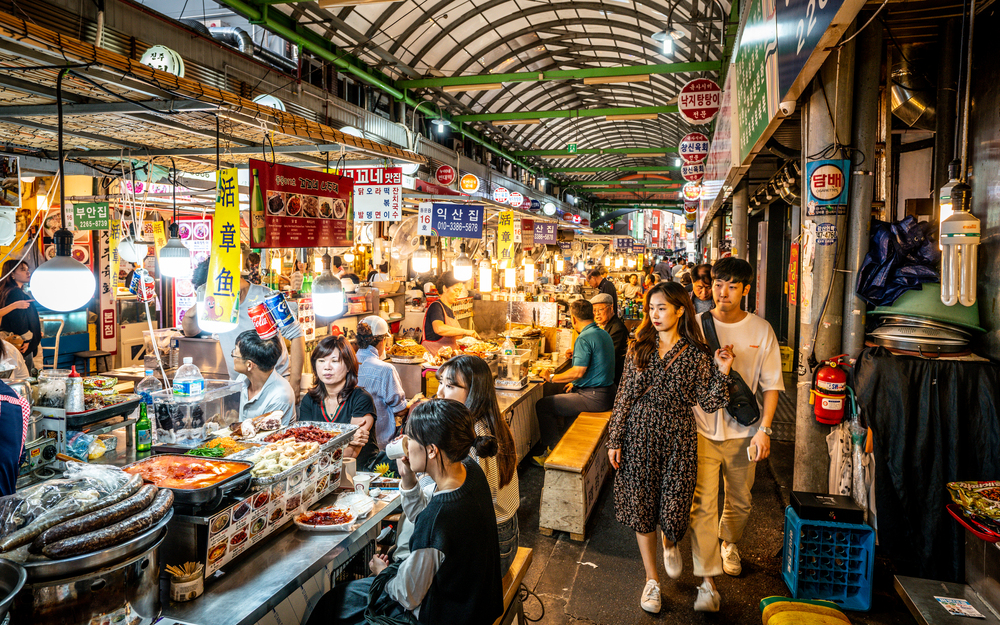
One of Seoul’s oldest and largest traditional markets comes alive at night with its
famous street food alleys. Hundreds of vendors specialize in beloved dishes like
bindaetteok (mung bean pancakes) and Mayak gimbap (bite-sized seaweed rolls).
The market’s second-floor houses countless fabric shops that have been operating
for generations. Its central location makes it easily accessible from most tourist
areas, with many nearby subway stations.
The vintage architecture and traditional atmosphere create an authentic experience that captures Seoul’s historic charm.
Busan – Jagalchi Fish Market
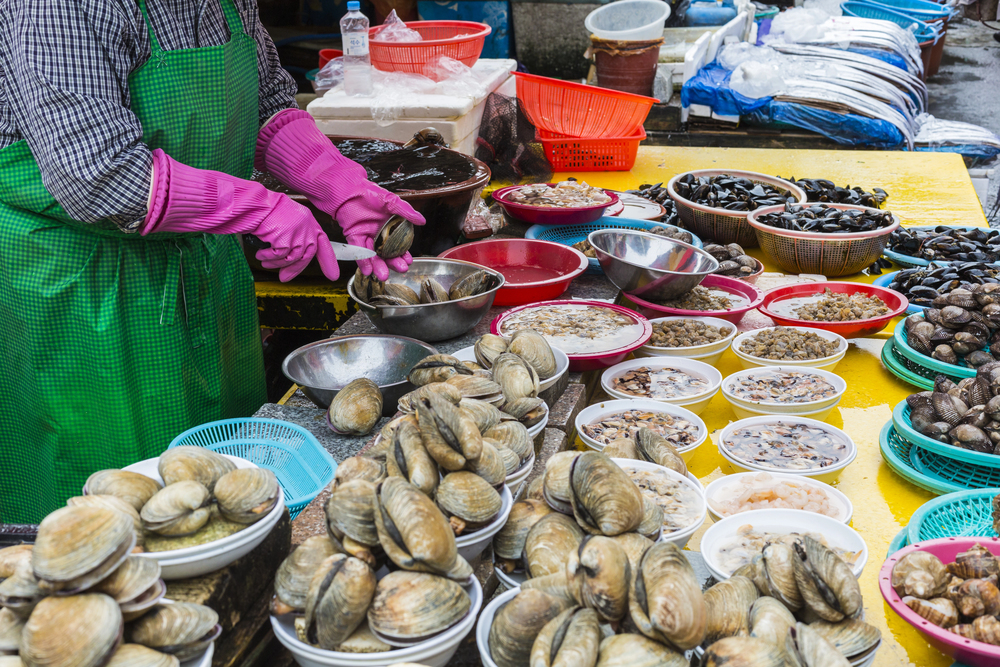
Being the largest port city in Korea, Busan’s fish market is where one can find the
freshest seafood anywhere in the country. The ground floor offers tanks of live fish
and shellfish.
The top floor has restaurants where orders can be placed for seafood to be prepared. Especially magical at night, reflecting the lights off the harbor. The local fishermen are proud of their catch and often give cooking tips and recommendations.
The renovation has recently added some modern facilities while maintaining the traditional charm of the market.
Like Travel Pug’s content? Follow us on MSN.
Incheon – Sinpo International Market
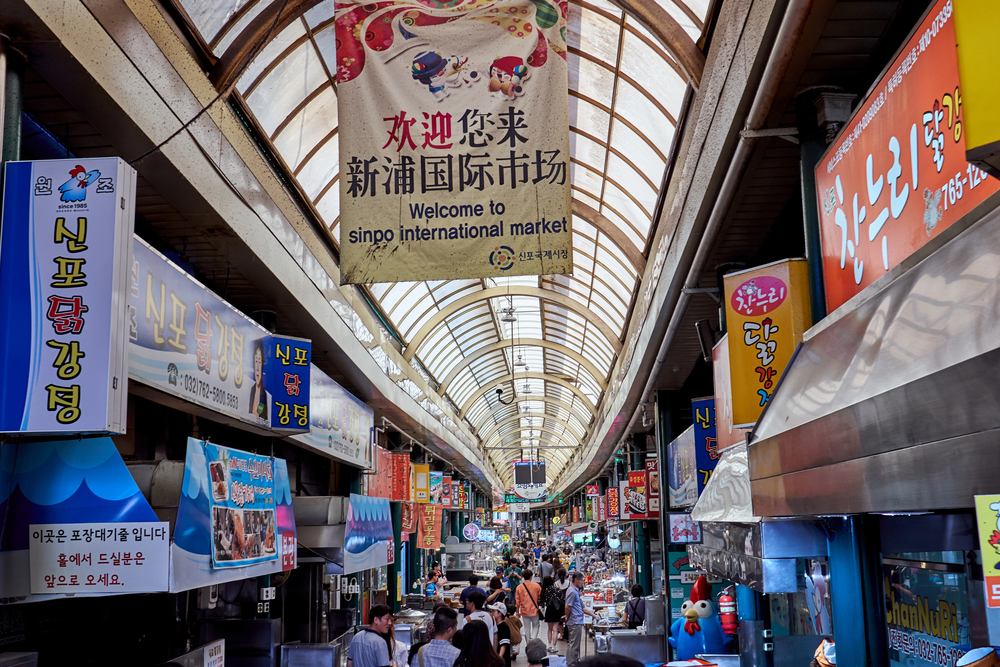
This historic market dates back to the 1890s and offers visitors a glimpse into
Korea’s past. Its famous red gate welcomes visitors to the narrow alleyways filled
with vintage shops and food stalls. Due to Incheon’s status as an international port,
the street foods also reflect the influences of Chinese and Japanese foods.
Elderly vendors share stories about the market’s history while preparing recipes passed
down through generations. The market’s famous butter-scented grilled lobster
attracts visitors from all over the country.
Daegu – Seomun Market
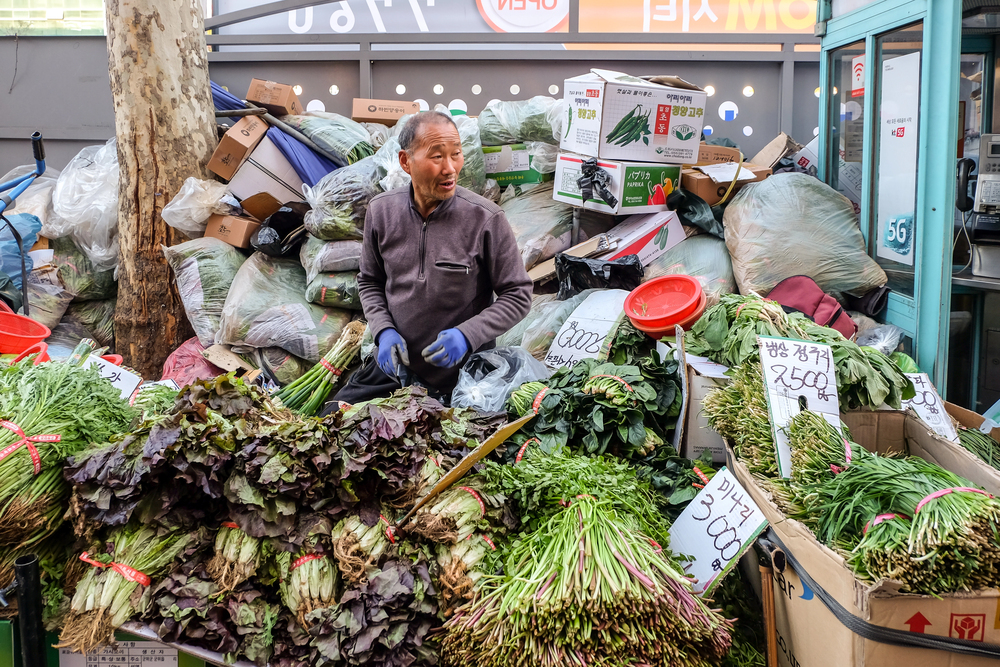
Daegu’s largest traditional market is renowned for its textile heritage and vibrant
night food scene. The market’s modern glass ceiling protects visitors from the
weather while preserving the historic atmosphere below.
Local artisans showcase traditional crafts alongside contemporary designers, creating a unique shopping experience. The market’s famous Galbi restaurants fill the air with the irresistible aroma of grilled meat.
The recent addition of cultural performance spaces has made this market a hub for shopping and entertainment.
Gwangju – 1913 Songjeong Station Market
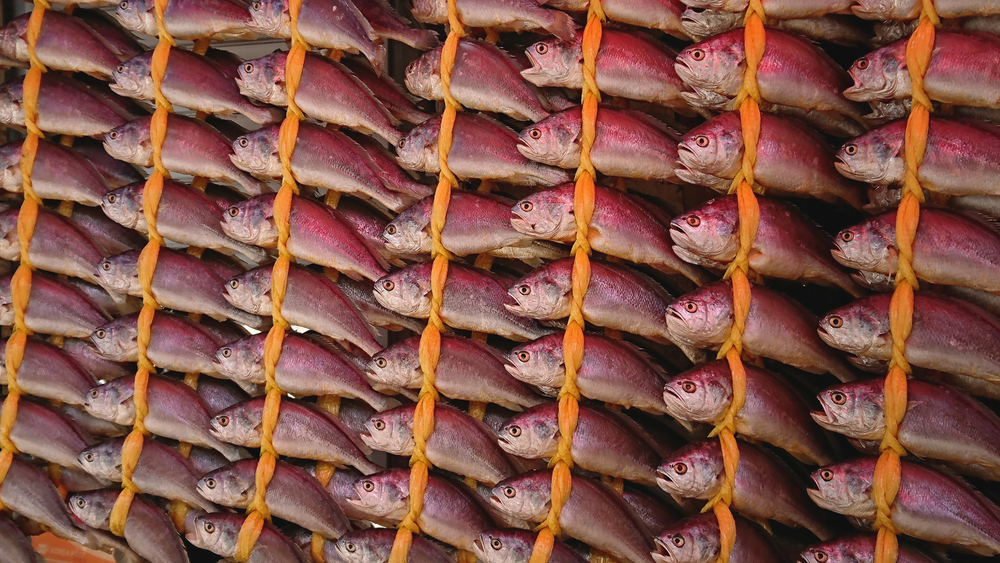
This beautifully restored market combines historic architecture with modern
amenities to create a unique shopping environment. The market’s name comes from
its founding year, and many original buildings have been preserved and repurposed.
Young entrepreneurs have breathed new life into traditional market spaces, creating
innovative fusion foods and craft shops. The market’s proximity to the train station
makes it a convenient stop for travelers.
Evening cultural events and live music performances enhance the market’s lively atmosphere.
Like Travel Pug’s content? Follow us on MSN.
Daejeon – Jungang Market
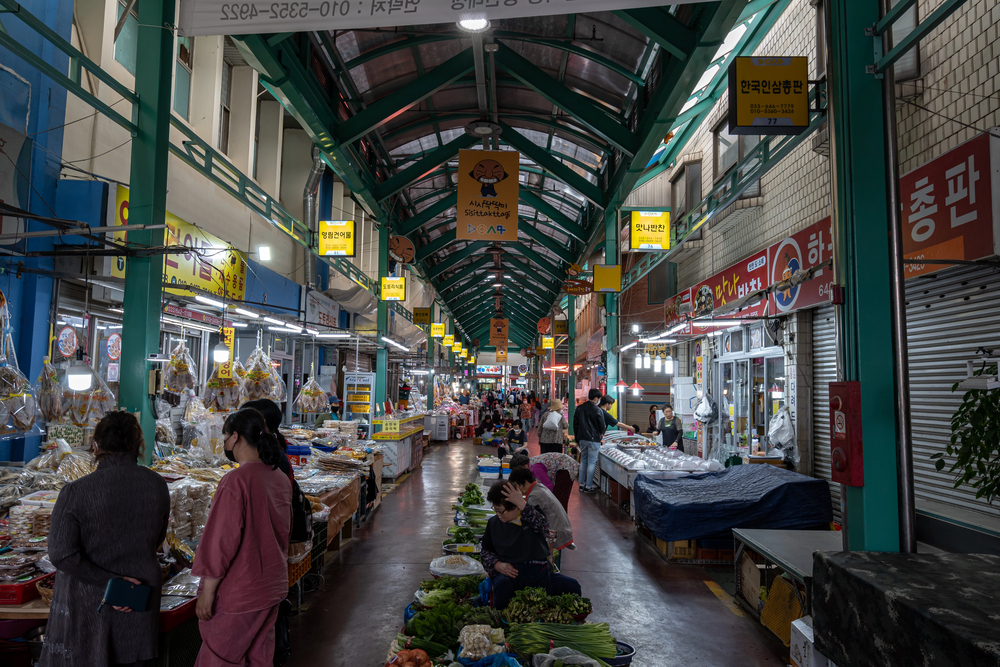
Daejeon’s central market comes alive at night with an impressive array of street food
and local specialties. The market’s famous bindaetteok (mung bean pancakes)
attracts food enthusiasts nationwide.
Modern lighting installations create stunning photo opportunities throughout the historic market streets. Local university students frequent the market’s trendy cafes and unique fashion boutiques.
The market’s central location makes it easily accessible throughout the city.
Ulsan – Taehwa River Night Market
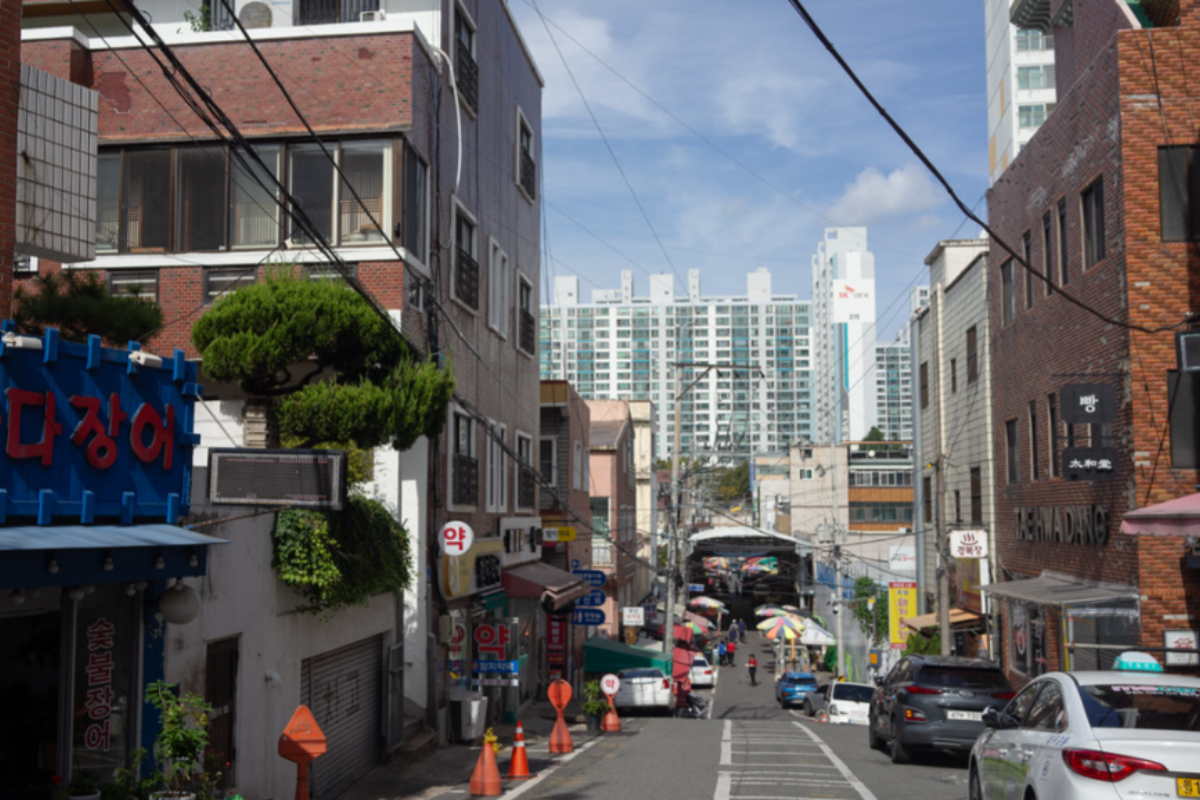
The riverside market perfectly blends food, culture, and natural beauty. Its location
on the Taehwa River offers a beautiful evening view for shopping and dining.
Fishermen sell their day’s catch directly to customers, ensuring fresh seafood.
Wooden boardwalks with comfortable seating arrangements provide the ambiance
for enjoying the purchased goods at sunset. Cultural performances and seasonal
festivals make the weekend very vibrant in this market.
Suwon – Paldalmun Market
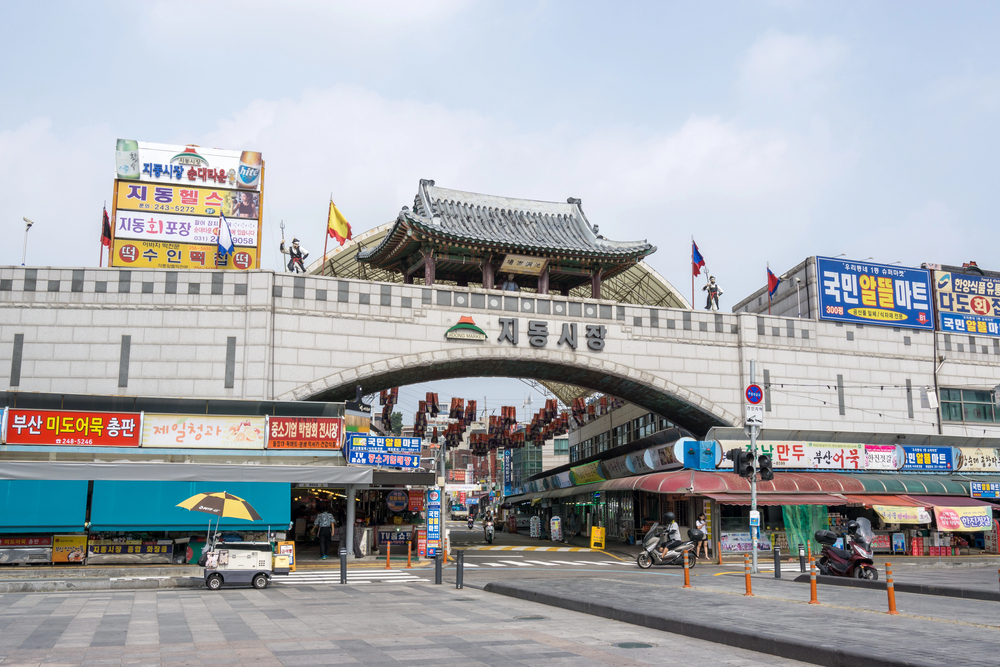
This market, situated near Suwon’s historic fortress, blends cultural heritage with
modern shopping experiences. The traditional gate impressively entrances streets
filled with local delicacies and crafts.
Evening food tours led by local guides help visitors navigate the market’s extensive offerings. The fortress walls nearby make a dramatic backdrop for nighttime photos.
Traditional tea houses provide peaceful retreats from the bustling market streets.
Like Travel Pug’s content? Follow us on MSN.
Jeju – Dongmun Market
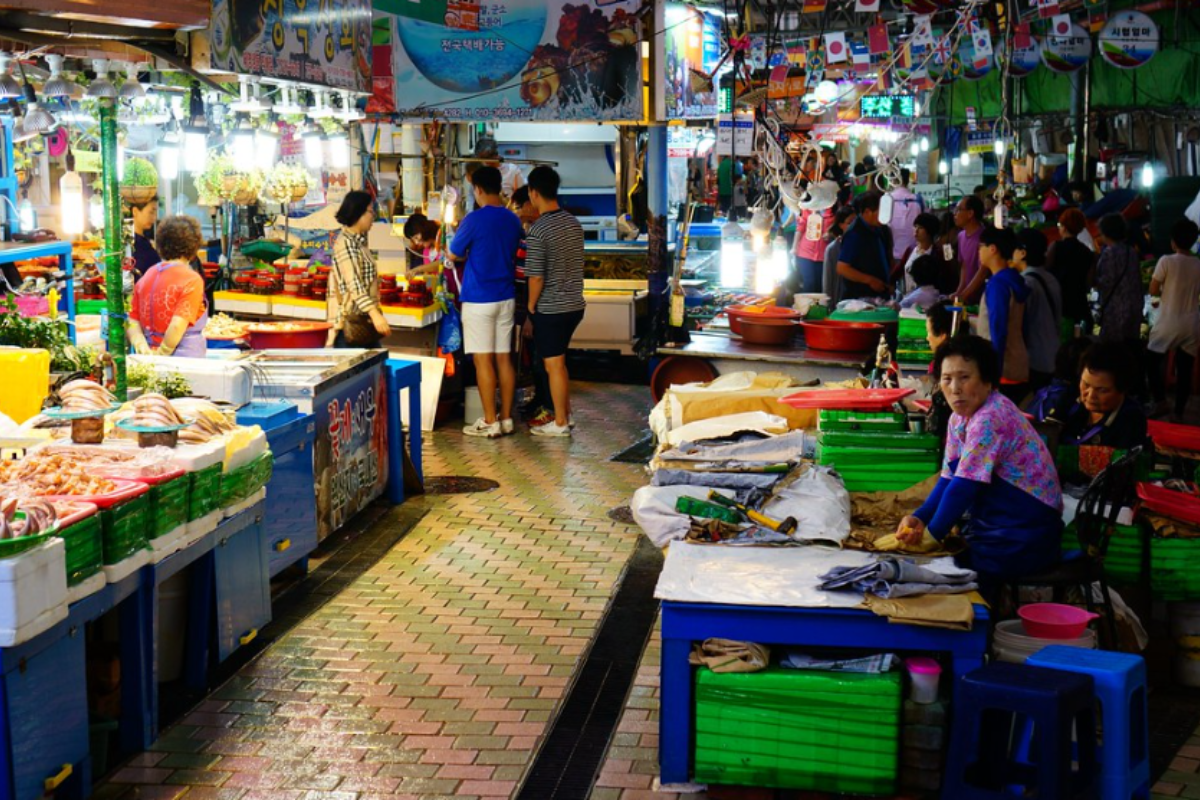
The largest traditional market in Jeju Island offers unique flavors of Korea’s southern
paradise. Fresh seafood caught by Jeju’s famous female divers is available
throughout the market.
The outdoor section features local produce and the island’s famous citrus fruits. Traditional Jeju black pork restaurants draw crowds with their signature dishes.
The modern food court offers comfortable seating and ocean views.
Jeonju – Nambu Market
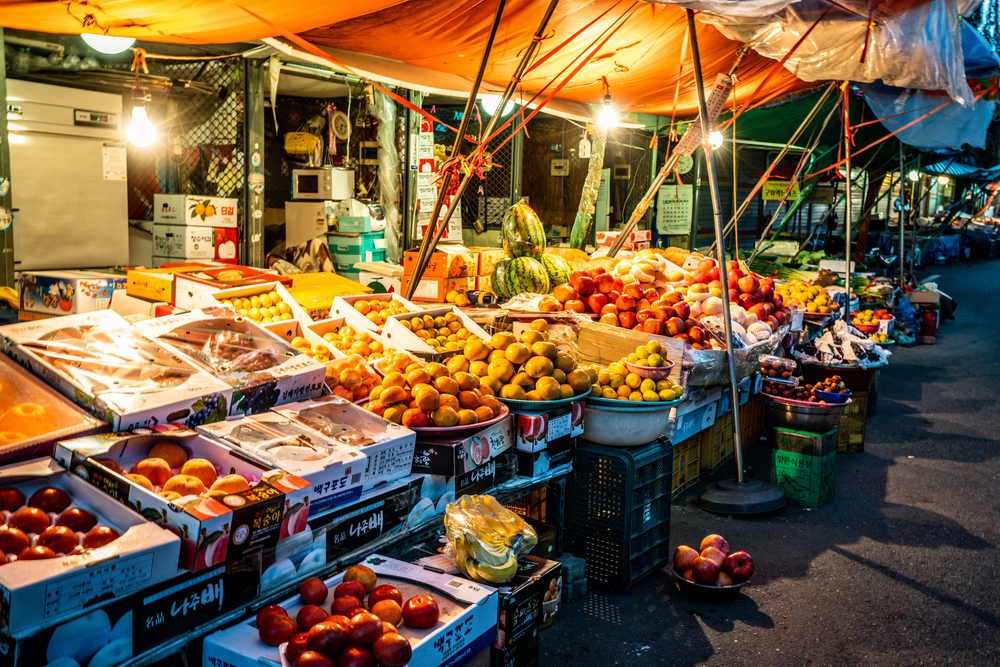
The culinary capital of Korea presents its finest traditional foods in this historic
market setting. Local vendors prepare Jeonju’s famous bibimbap using time-honored
recipes and techniques.
The market’s traditional architecture has been preserved while adding modern conveniences for shoppers. Evening cooking demonstrations showcase the preparation of local specialties.
The market’s central location in Jeonju’s hanok village adds to its historic charm.
Chuncheon – Romantic Market
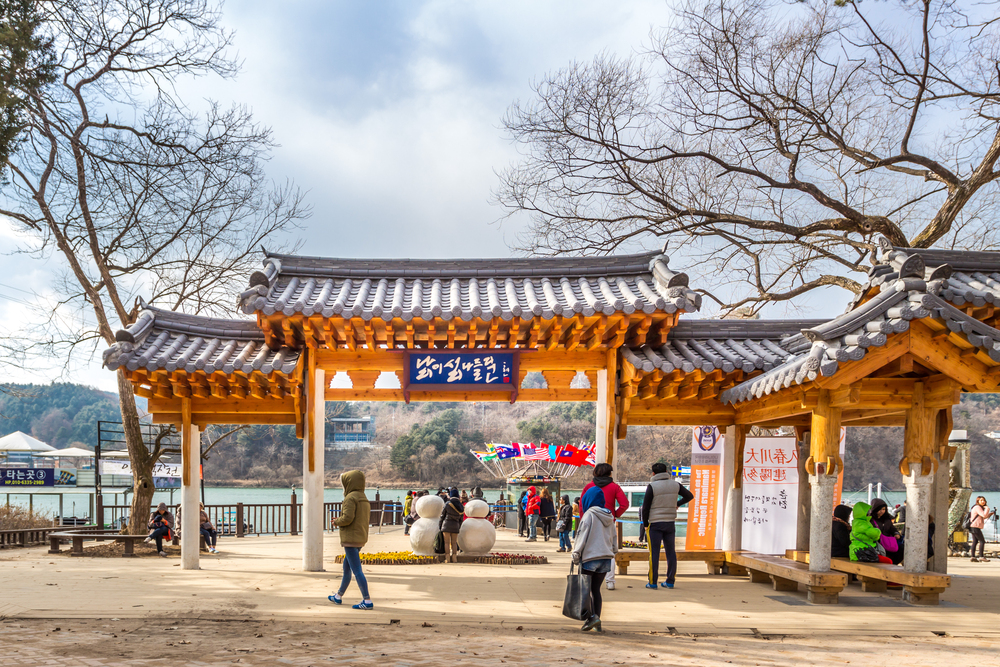
This lakeside market earned its name from its beautiful evening atmosphere and
popularity among young couples. Its location near several universities keeps it lively
with student activities and performances.
Local dak galbi restaurants compete to serve the city’s signature spicy chicken dish. Modern art installations and photo zones attract social media enthusiasts.
The market’s waterfront location provides cool breezes during summer evenings.
Like Travel Pug’s content? Follow us on MSN.
Gangneung – Jungang Market
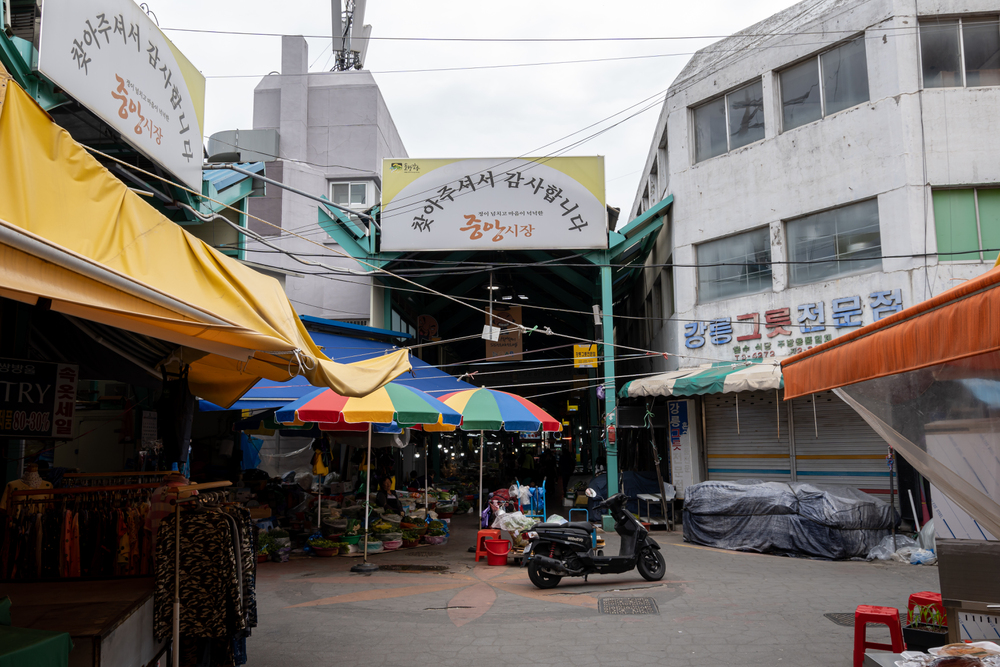
This coastal city’s central market offers a perfect mix of seafood and traditional
Korean snacks. The market’s location near famous beaches makes it a popular
evening destination for tourists.
Local vendors specialize in East Coast delicacies like squid and fish cakes. The market’s coffee street reflects Gangneung’s reputation as Korea’s coffee capital.
Regular cultural events celebrate local traditions and seasonal festivals.
Pohang – Jukdo Market
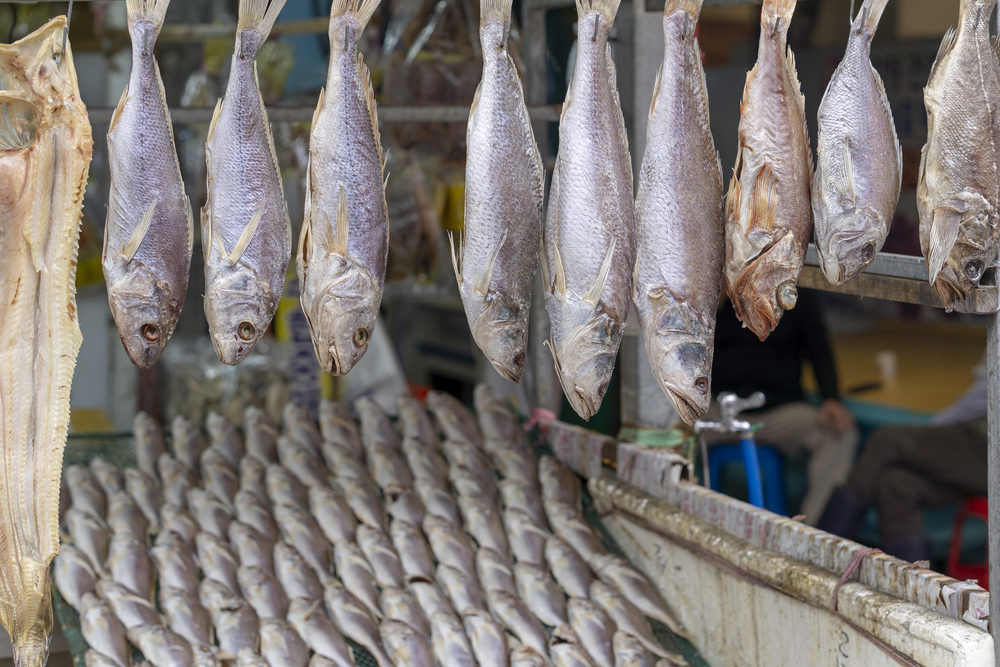
This port city’s market specializes in the freshest seafood from the East Sea. The
market’s second floor offers panoramic views of the harbor and fishing boats.
Recent renovations have added modern facilities while maintaining the traditional market atmosphere. Local restaurants prepare raw fish dishes according to time-honored traditions.
The market’s location near popular beaches makes it a perfect evening destination.
Andong – Traditional Market
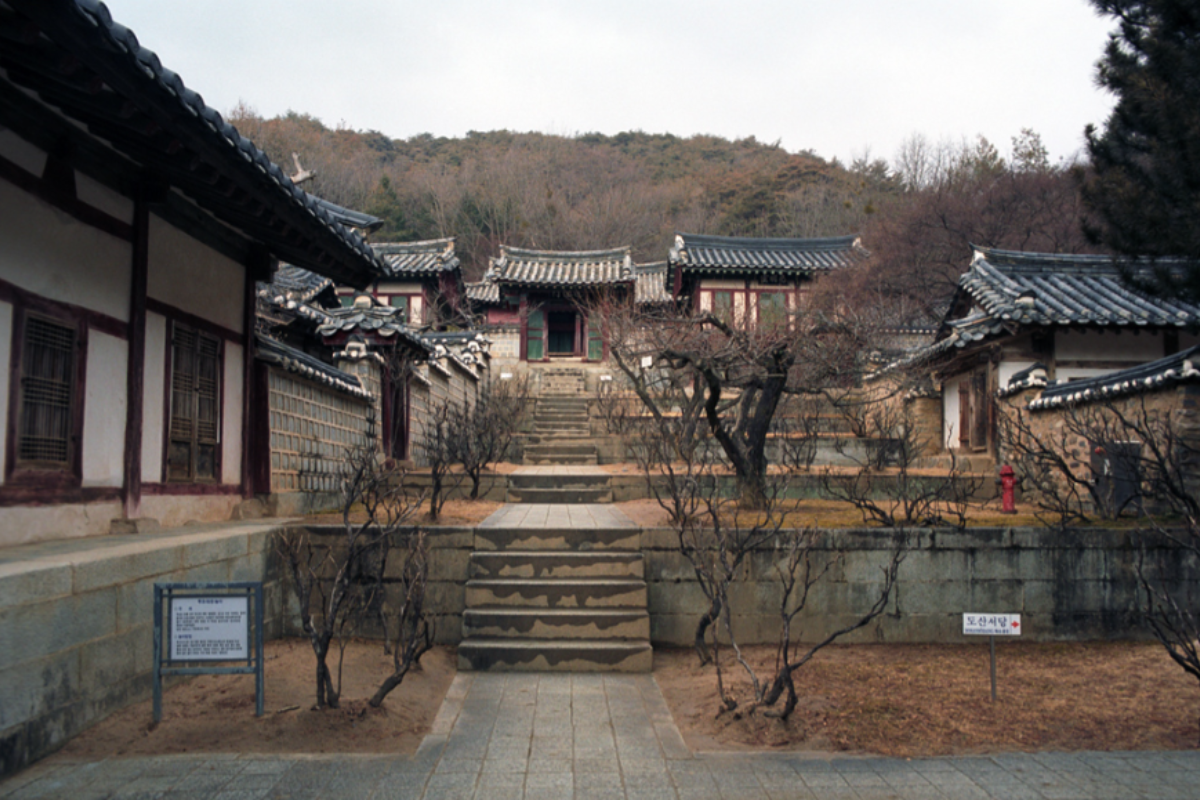
Famous for its traditional foods and crafts, this historic market preserves Korea’s
cultural heritage. The market specializes in Andong’s famous salted mackerel and
local specialties like Andong soju and hand-made masks.
Traditional craft demonstrations keep ancient techniques alive for new generations. The market’s location near Andong’s famous Hahoe Folk Village adds to the area’s cultural
significance.
Evening traditional music performances
Like Travel Pug’s content? Follow us on MSN.
Yeosu – Ocean Market
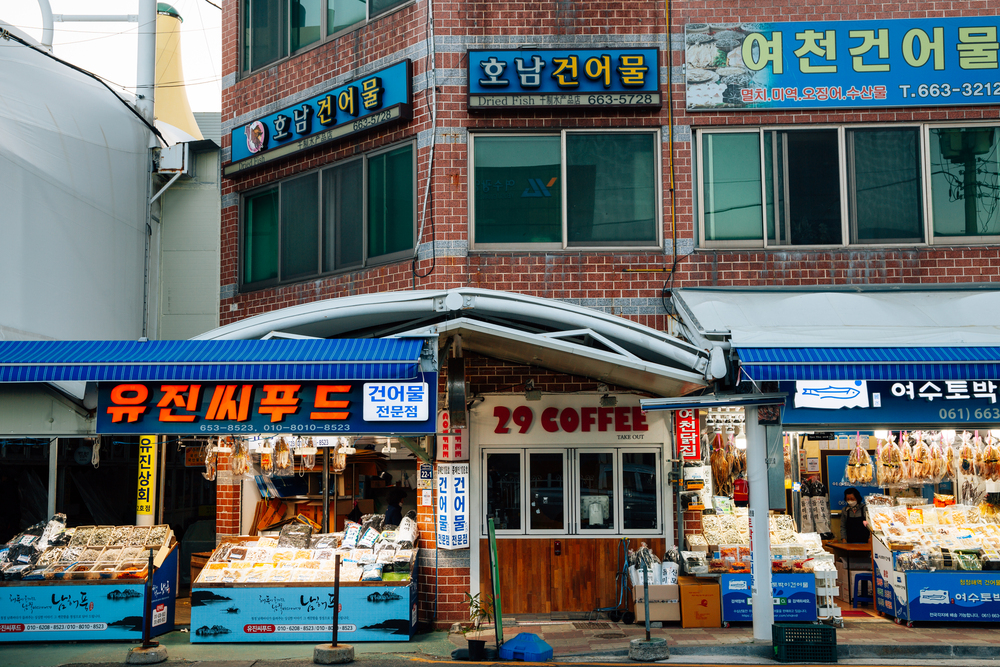
This coastal city’s night market offers stunning views, fresh seafood, and local
specialties. The market’s location on the southern coast provides access to unique
marine products.
Modern facilities make it easy to enjoy fresh seafood prepared on the spot. The market’s famous raw fish restaurants attract visitors from across the country.
Evening cruises departing from nearby docks offer different perspectives of the market area.
Exploring Korea’s Night Market Culture
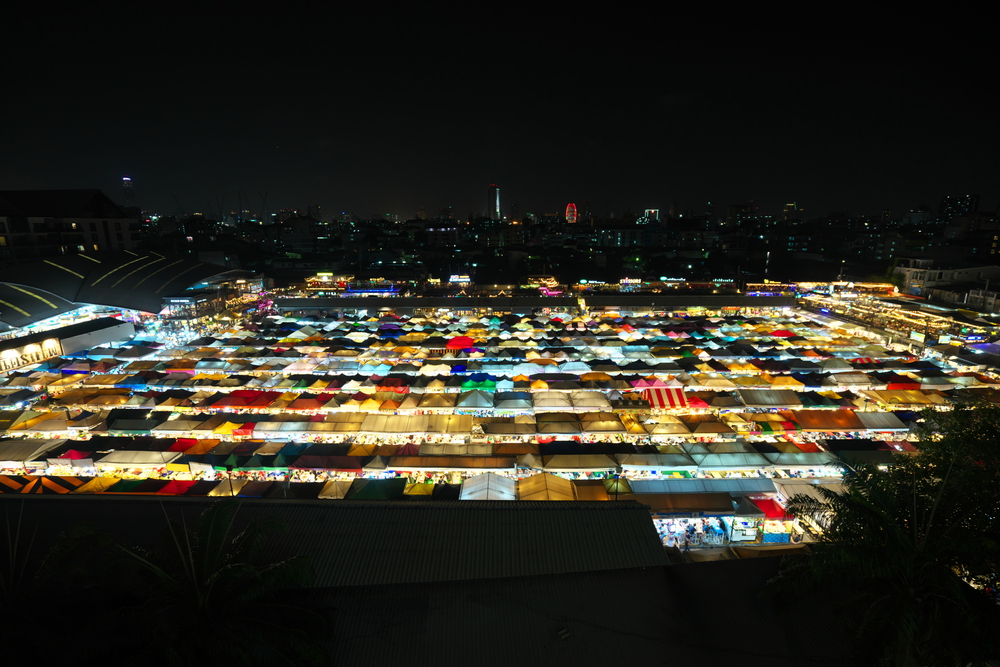
Your journey through South Korea’s night markets offers more than just shopping
and dining – it’s an immersion into the heart of Korean culture. Each market tells its
own story through its unique specialties, local traditions, and the warmth of its
people.
Whether you’re a food enthusiast, a culture seeker, or simply looking for authentic
experiences, these markets provide an unforgettable window into Korean life.
Consider visiting multiple markets to appreciate the diversity and richness of Korea’s
night market scene.
More from Travel Pug

- 15 Dangerous European Cities to Avoid
- 15 Caribbean Islands Where Tourists Keep Getting Scammed
- The 20 Most Fascinating Abandoned Places: A Journey Through Time and Forgotten Spaces
- 15 Hidden Places in the Smithsonian Museums Locals Love: A Guide to Lesser-Known Treasures
- 16 Hidden Florida Beach Towns That Aren’t Overrun with Tourists
Like Travel Pug’s content? Follow us on MSN.
